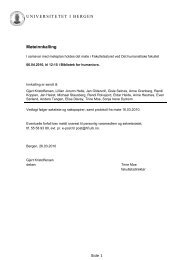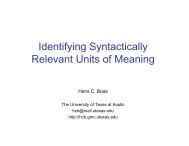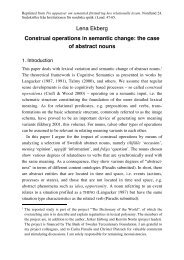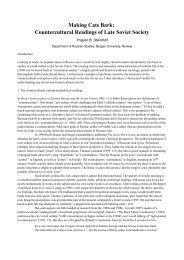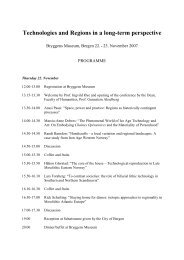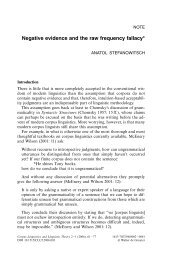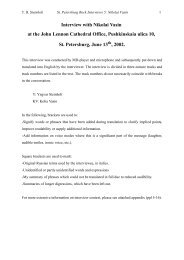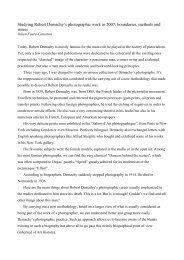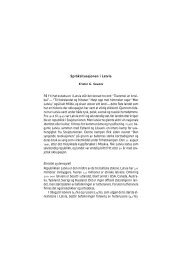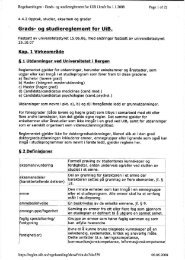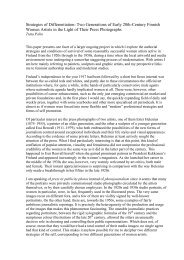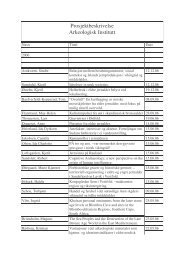THE BOOK OF POEMS IN TWENTIETH-CENTURY ... - TopReferat
THE BOOK OF POEMS IN TWENTIETH-CENTURY ... - TopReferat
THE BOOK OF POEMS IN TWENTIETH-CENTURY ... - TopReferat
You also want an ePaper? Increase the reach of your titles
YUMPU automatically turns print PDFs into web optimized ePapers that Google loves.
And I only whispered: "Cast off!<br />
Throw your scorching spirit into the sea."<br />
And he began to jump, to growl:<br />
"You are better, quieter than Jonah."<br />
I forgot my own blood,<br />
All the names, and death, and terror—<br />
Leviathan already swam in the sea,<br />
Straining with all his might in contractions.<br />
Oh, the labor was difficult. The poor creature!<br />
A bloody fountain beat the sky.<br />
When I flew out in the red foam,<br />
How deep Leviathan dove!<br />
In this poem, Lavinia radically rewrites the story of Jonah and the whale. Unlike Jonah,<br />
who attempts to run away from God, Lavinia immediately heeds the call of the<br />
Leviathan. Once she has entered into his belly, she finds an unearthly peace, forgetting<br />
the world around her and even her own self. It is as if she has readily journeyed toward a<br />
beckoning God, and, once she has arrived, experiences heaven—a utopia before the Fall.<br />
An innocent child of God, she is ultimately born, like Christ, into the world. This link to<br />
Christ is strengthened by the physical description of the Leviathan's labor in the final<br />
stanzas, recalling the strange birth imagery in "Темная Рождественская песнь."<br />
The Leviathan, however, is traditionally a symbol of chaos or Satan, not God. 226<br />
This could suggest that Lavinia is in fact being enticed by and born of the devil; 227 the<br />
poem as a whole, however, seems too positive for such a reading. 228<br />
Instead, Lavinia's<br />
relationship with the Leviathan highlights other Christ-like qualities in her, specifically<br />
226 "Leviathan, both in the Bible (Job 41; Ps 74.14; Isa 27.1; see also Job 7.12; Isa 51.9; Hab 3.8) and in<br />
other ancient Near Eastern literature, is a sea monster representing cosmic chaos." Michael D. Coogan, ed.,<br />
The New Oxford Annotated Bible (New York: Oxford University Press, 2001), 730.<br />
227 Later in the book, the devil appears as a tempter in several poems, a few of which I will discuss below.<br />
228 Sandler describes Lavinia's experience of forgetting in this poem as inherently positive: "time spent<br />
inside the whale is comforting and revelatory to Lavinia; memories of death and horror are wiped away,<br />
and her own identity seems washed aside as well." Sandler, "Elena Shvarts and the Distances of Self-<br />
Disclosure," 103 n.29. By treating the Leviathan as simply a "whale," however, Sandler does not address<br />
its potentially negative force.<br />
173



